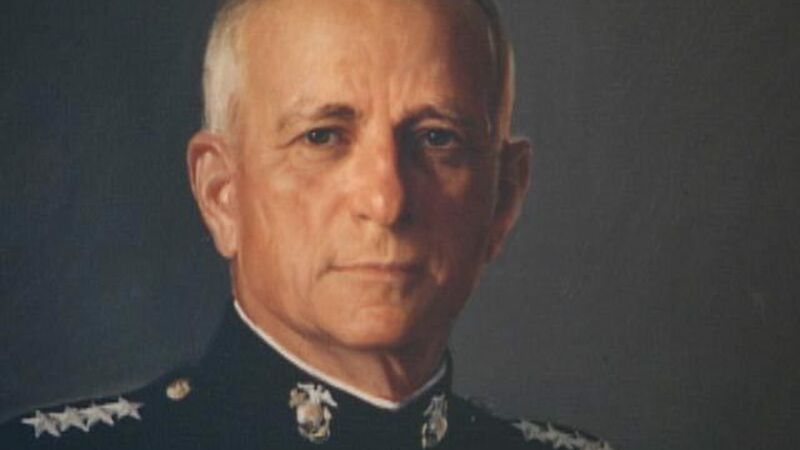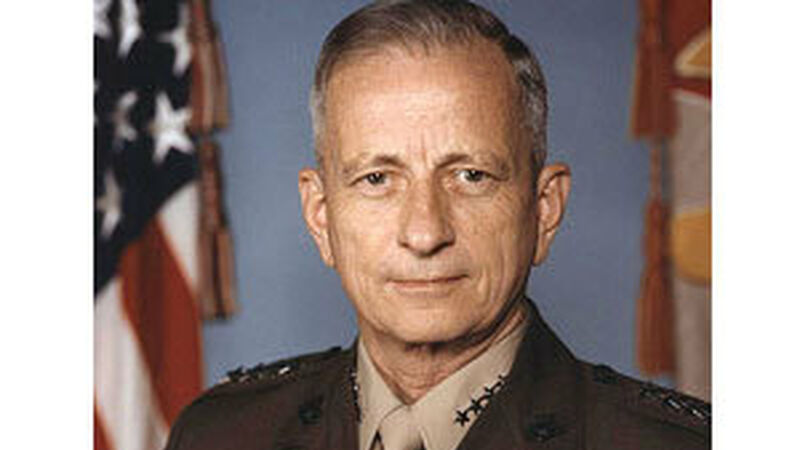
Want to see this program? Get the DVD!
Watch this Program
Already a Friend of LPB? - Search on Passport.
Not a Friend of LPB? - Join here.
Program
LPB has developed a documentary about General Robert H. Barrow, the 27th commandant (man in charge) of the U.S. Marine Corps.
Gen. Barrow grew up in rural West Feliciana Parish. He was surrounded by symbols of wealth: his family home - the beautiful Rosale Plantation - and his relatives’ homes - Oakley, Afton Villa, Greenwood, Highland, Rose Bank, Island and Greenwood plantations. Many of these charming plantations were built by aunts, uncles and cousins, who were very well-educated for their generation in the mid to late 1800s. Others were purchased by members of the Barrow family.
Despite the plush surroundings, many of the Barrows lost their financial fortunes during and after the Civil War. Robert Barrow’s grandfather was among the people who went broke. His father went from pillar to post, trying to earn a living. Meanwhile, little Robert entertained himself by reading from light furnished by a kerosene lamp, playing guitar with his African-American friends and hunting.
He got what he considered a good education at Julius Freyhan High School in St. Francisville. Barrow dreamed of going to West Point Military Academy before graduating from high school; but, he didn’t feel he had the political connections to get into West Point. Instead, he went to LSU where he worked his way through school as a custodian at the Pentagon Barracks.
Barrow abandoned school in pursuit of becoming a career Marine. He soon learned he had better options if he in fact got a degree. He went on to obtain a bachelor’s degree from the University of Maryland, and later graduated from the National War College.
Military Experience
While rising through the ranks, Barrow served as a fearless combat leader in World War II, the Korean War, and the Vietnam War. During World War II, Barrow led training for tens of thousands of Chinese guerilla teams aimed at ending Japanese occupation in their country. The operation was called the Sino-American Cooperative Organization. Barrow was awarded the Bronze Star for his work on this mission.
Barrow led an infantry company in the Inchon landing near Seoul during the Korean War. He was awarded the Navy Cross for the unit’s success in rescuing another division amid heavy fighting. Barrow and his men were fighting in 25 degree below zero weather.
Barrow was still going strong during the Vietnam War. He commanded the Ninth Marine Regiment in the Third Marine Division. Troops under his command killed more than 1,600 soldiers and captured more than 1,400 weapons. Barrow was awarded the Army’s Distinguished Service Cross for his heroism in Operation Dewey Canyon.
The Marine Corps rewarded Barrow for his service by promoting him to the rank of Four-Star General. As commandant, he is credited with improving the quality of Marine recruits, discharging Marines who had drug problems, and making sure the troops had the best equipment possible. Some go as far as to say the general saved the Marine Corps. The organization fell under heavy scrutiny after the Vietnam War. Sen. James Webb of Virginia said “At a time of real political turbulence in this country, he kept the politicians away from the Marine Corps and he kept the Marine Corp out of politics.”
Retirement
Upon retirement, Gen. Barrow returned to his beloved West Feliciana Parish in Louisiana, a place he says he thought about every single day of his 41 years of military service. He loved nature and often paraphrased Henry Wadsworth Longfellow’s Hiawatha in describing the community as “a place where you could hear a leaf drop on the water.” Barrow was the first Marine commandant to decline being buried in Arlington National Cemetery. He chose instead to be buried in the oak-covered cemetery at the beautiful Grace Episcopal Church, in his beloved West Feliciana Parish. LPB has enjoyed every moment of putting this story to pictures for you, our viewers, with the help of the Barrow family and many others. It’s a story of a quintessential southern gentleman who loved his home, family, country, service of his country and nature. He was a man of unquestionable integrity, character and courage.



